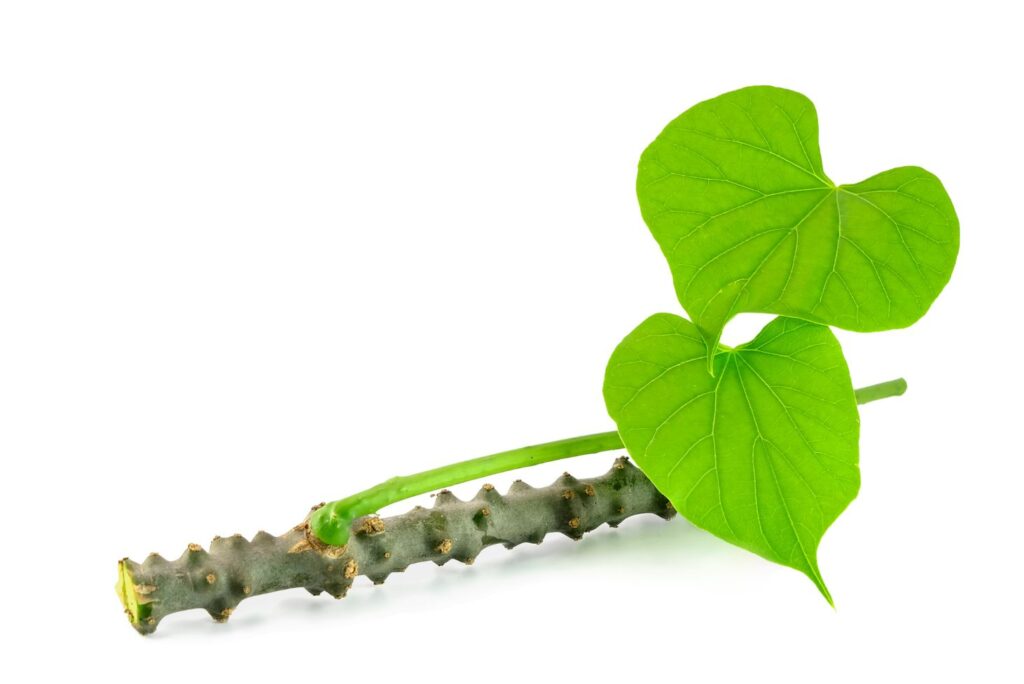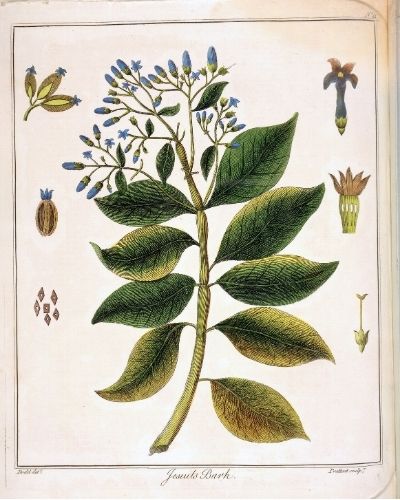Looking for natural alternatives for hydroxychloroquine? Continue reading this article and find out more about hydroxychloroquine and its natural substitutes.
In This Article You Will Find:
What Is Hydroxychloroquine?
Chloroquine, the precursor of hydroxychloroquine, has been around for over 80 years. The drug was first developed as an antimalarial treatment. Today, doctors also prescribe it for conditions like rheumatoid arthritis and lupus. After being used for ages to treat malaria, some of the parasites causing malaria have developed a resistance to it. Hence, doctors created a milder version, that we know as hydroxychloroquine. Hydroxychloroquine is an alkaline compound used for the treatment of malaria, as well as rheumatoid arthritis and lupus.
7 Natural Alternatives to Hydroxychloroquine
Before chloroquine and hydroxychloroquine were even synthesized in labs, doctors used natural extracts to treat malaria. The most notable natural alternatives to hydroxychloroquine are:
Most of the natural alternatives to hydroxychloroquine below have no negative interaction with chloroquine and hydroxychloroquine, according to studies. In addition, they have little to no side effects if used according to a medical prescription.
1. Sweet Wormwood
(Artemisia annua)
This simple herb has been used for centuries in Chinese medicine as a treatment for malaria. According to some scientific research, artemisinin has a higher chemotherapeutic index than chloroquine and is effective in chloroquine-resistant strains of human malaria. Artemisinin, also known as qinghaosu, is an antimalarial compound, that although is not a direct natural alternative to hydroxychloroquine or chloroquine, fights the same cause. In addition, it is particularly active against chloroquine-resistant P. falciparum, the parasite that causes malaria in humans.
The aforementioned scientific paper revealed that artemisinin and its two derivatives have been used clinically for the treatment of cerebral malaria in areas where chloroquine resistance was endemic and the cure rate was greater than 90%. In addition, sweet wormwood fights viral loads and can reduce cellular immune depression caused by excess cortisol. In other words, it helps the body cells stay strong when we’re going through very stressful situations.

Very Important!
Wormwood tea and natural products should not be used longer than 8 days in a row. Always follow the dosage recommended on the package. In high doses, wormwood is toxic due to its volatile oils and has, in the first phase, a psychoexciting, convulsive, narcotic action, followed by tremor, epileptiform seizures, stupor, and unconsciousness. Wormwood products are not recommended to pregnant and lactating women or people suffering from ulcers. One should consult a doctor before using wormwood.
2. Cinchona Bark
(Chincona officinalis)
Did you know that chloroquine was actually created as an alternative treatment for quinine? Yes, before chloroquine and its newer version, hydroxychloroquine, quinine was the natural and only treatment for malaria. In Europe, the Chichona tree bark has been used as a malaria medicine since the early 17th century.
Quinine is naturally extracted from the bark of Cinchona trees. This natural source of quinine has proven to have effective anti-malarial properties, as studies show. The WHO guidelines still recommend the use of quinine in various drug combinations to treat mild malaria and consider it to be safe for first-trimester pregnant women who suffer from malaria.
3. Remijia Bark
(Ciliosemina pedunculata)
It is a flowering shrub native to Peru, Colombia, and Brazil, a cheaper version of quinine compared to Cinchona bark. Due to the high quinine and quinidine alkaloids, it contains, Remija’s bark is used to make tonic water and beverages. It is, as you may assume, bitter and astringent in taste. This plant is an effective treatment for fevers and is especially used as a treatment and preventative for malaria. It is a common herbal treatment for malaria, cold and influenza, sore throat as well as other conditions such as neuralgia, muscle cramps, and cardiac fibrillation. Remijia bark could be a natural alternative to hydroxychloroquine.
Read Also: 10 Best Natural Sources of Zinc
4. Macassar fruits
(Brucea javanica)
This medicinal plant is an ancient treatment for malaria fever in the South-Eastern parts of Asia. Recent studies revealed that the biochemical compounds in this plant, namely the alkaloids, flavonoids, and phenols in its fruits, and the alkaloids, phenols, and saponins in its roots are highly effective against malaria.
Other studies have revealed that the use of this extract doesn’t interfere with the antiplasmodial activity of chloroquine and quinine. Moreover, doctors use it to delay the onset of chloroquine-resistant malaria. It is not a natural alternative to hydroxychloroquine or chloroquine per se, but it has the same therapeutic action and fights chloroquine-resistant malaria.

5. Guduchi
(Tinospora cordifolia)
Guduchi, commonly known as heart-leaved moonseed, is an Ayurvedic medicine for malaria, with immunomodulatory properties just like chloroquine and hydroxychloroquine. Guduchi is a common alternative treatment for intermittent fevers due to dengue and malaria. A 2011 study compared the efficiency of a natural Ayurvedic medicine made with Guduchi and ginger with hydroxychloroquine sulfate, for the treatment of rheumatoid arthritis (RA). The conclusion was that Guduchi with ginger has similar effects in controlling active RA, just like hydroxychloroquine sulfate, but no side effects.

6. Ylang Ylang
(Cananga odorata & Artabotrys hexapetalus)
Another highly effective malarial drug is the semi-synthetic extract from the Ylang Ylang plant, known as arteflene. This compound actually has suppressive and prophylactic properties, similar to chloroquine and superior to artemisinin. According to a 1994 study, it has low acute toxicity when taken orally or in subcutaneous administration.
In Java and Vietnam, the dried flowers of C. odorata are used to treat malaria and malaria-like symptoms. Native healers of The Northern Mariana Islands use the flowers and bark of this beautifully scented flowering shrub to treat pneumonia and stomach pains. Indians use the Ylang Ylang bark decoctions to treat rheumatism, phlegm, ophthalmia, ulcers, and fevers.

7. Tree of Heaven
(Ailanthus altissima)
The seeds of this tree contain an active compound, similar to hydroxychloroquine in its action against malaria. We are talking about quassin, one of the most bitter substances found in nature. Quassin is a very common ingredient in soft tonic drinks.
According to a 2003 study, quassin is highly effective against both chloroquine‐resistant and chloroquine‐sensitive strains of Plasmodium falciparum (the parasite that causes malaria) in vitro. The are other trees from the Simaroubaceae family, that have high levels of quassinoids. Simba Cedron is one of them. Due to its high levels of quassinoids, this tree’s extract is used to treat malaria, as an alternative to chloroquine.
Other Natural Alternatives to Hydroxychloroquine
Here are other foods, herbs, and spices that naturally fight malaria:
- grapefruit, cinnamon, lemon, lime, oranges, ginger, raisins, honey, pepper, and basil.
Here is how you can use them for prevention:
- Heat up 1 grapefruit and eat its pulp. Grapefruit contains quinine-like substances, which in turn are effective in treating malaria.
- Boil some freshly ground black pepper and 1 tsp of cinnamon in 1 cup of water. Leave it to cool off and then add a bit of honey. Drink this spicy tea while warm.
- Mix 60 ml of water with the juice from 1 lemon and 3 mg of lime juice. Drink this to prevent fever episodes.
- Juice the leaves of holy basil to make 11 mg of fresh juice, and mix this juice with 3 mg dried and powdered holy basil and freshly ground black pepper.
- Add 1 small piece of ginger and 2-3 raisins to a cup of water. Boil until the initial water quantity drops to half. Let the tea cool off a bit and drink it warm.
Avoid oily, fatty, ready meals, junk foods, or deep-fried foods, and try to eat as many fresh fruits and veggies as possible.
Good to know! In the initial stages of malaria, patients follow a diet of orange juice and water.
One Final Word
We hope that this information here on the 7 natural alternatives to hydroxychloroquine for malaria has empowered you and helped you see things in a more positive light. You create your reality, so make it a good one. Stay positive, no matter what because fear is the worst suppressor for the immune system, so don’t give in to fear.
Disclaimer!
The information in this article is designed for educational purposes only. It is not intended to be a substitute for informed medical advice or care. You should not use this information to diagnose or treat any health problems or illnesses without consulting your pediatrician or family doctor.




24 comments
Thank you for a well researched piece.
Thank you very much! I hope you found it helpful!
Thank you for some great research and information. One of the best I have read to date!
Thank you so much for your feedback! We wanted to help people with this information and show them that there is always a way to overcome any challenges in life, get out of fear, and step into higher vibrations. Much love to you! ❤️
Any idea of how much (in grams) quinine is there in grapefruit peels?
I cannot say. I also recommend that you read this article. Much health to you! 💜
https://www.mynaturaltreatment.com/3-highest-natural-sources-of-quinine/
I’m searching for how to use quinine tinctures/drops effectively without overdosing.
Kate, it’s best to use them as it is recommended by the producer, on the package.
A lot of info in a small bundle I often Refer/link to my posts in other platforms
Hi, Andrew! Much appreciated. 🙏🏻💚
Great info. Thank you!
Thank you! Much health to you.
I would like to know how much actual quinine is recommended and if I can use one of the natural sources like cinchona officinalis bark. They sell in 250 mg capsules and are organic. Just some personal feedback or suggestions…thank you
Hello Marcia! I could not tell you exactly what dosage would be most appropiate because I am not a medical doctor. I advise you to ask the manufacturer for the dosage or a naturopath. Much health to you!
Hello, I was wondering about the grapefruit. It says above to heat it up. Can you tell me how to do that please? Water, microwave, oven etc…
Hi, Candra! Yes you can bring it to a boil in water or slightly heat it up in the oven, I don’t recommend microwaving due to radiation. Much health to you! 💚
Thank you Andreea Laza for your advice I greatly appreciate it. I am grateful for your kind heart and your willingness to help people.
Thank you so much for your kind words, Ryan. Sorry the late reply, I mistakenly didn’t see your comment and when I looked over the article I saw that I didn’t reply to you, my bad. Much health and blessings to you! 💚🤗
Thank you for your amazing compilation. Shared!
Thank you so much, Serena! 💚
Thank you for all your information Andreea!
Cistus incanus is powerful herb and rich in bioflavonoids and polyphenols.
You can find it as tea or tincture.
Also Lumbrokinase. nattokinase, serrapeptase prevents blood clots.
Hi Alexander! Thank you so much for your information as well, I will look into this herb. I have also posted an article on herbs/natural supplements that prevent blood clots and nattokinase is one of them. You can read the full article here https://www.mynaturaltreatment.com/herbs-that-dissolve-blood-clots/ Much health to you! 💚
Andreea thank you for your wonderfully informative article.
Thank you so much for your appreciation, Karen. I am really, really happy that I could help. Much health! 🙏🏻💚